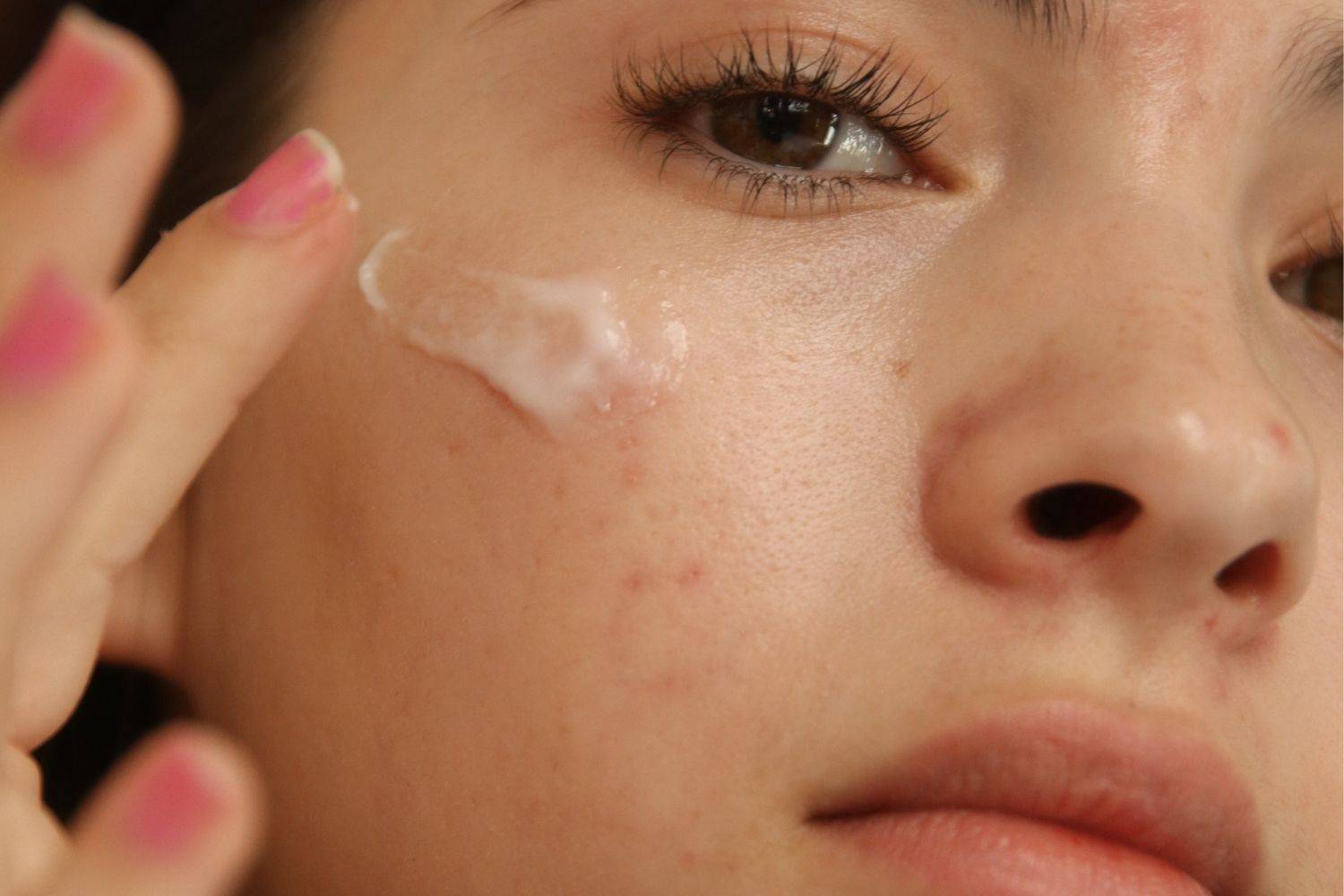Pimples, or what dermatologists call "papules," are small bumps on the skin that are usually red and inflamed. They're caused by a buildup of oil, bacteria, and dead skin cells in the pores. Blackheads, also known as "open comedones," are a type of pimple with a dark color caused by oxidized oils. Whiteheads, or "closed comedones," are similar to blackheads, but they don't have an open pore on top and are therefore not darkened.
There are a variety of topical treatments available for acne, including over-the-counter products and prescription medications. Over-the-counter treatments like benzoyl peroxide and salicylic acid are common first-line treatments for mild acne. Prescription medications like retinoids and antibiotics are typically used for more severe cases. Other treatment options include light therapy and chemical peels.
Benzoyl peroxide is an antimicrobial that helps to kill bacteria and reduce oil production. Salicylic acid is a chemical exfoliant that helps to unclog pores and remove dead skin cells. Both of these ingredients can cause skin dryness, so it's important to use a moisturizer as well.
The most common prescription acne treatments are retinoids and antibiotics. Retinoids, like tretinoin and adapalene, are vitamin A derivatives that help to unclog pores and reduce inflammation. Antibiotics, like doxycycline and minocycline, are used to kill bacteria and reduce redness and swelling. Some people may also be prescribed a combination product that contains both a retinoid and an antibiotic.
Light therapy, or phototherapy, is a treatment that uses light to kill bacteria and reduce inflammation. The most common type of light therapy for acne is blue light therapy, which uses blue light to kill the bacteria that causes acne. Another type of light therapy, called intense pulsed light therapy, uses a combination of different light wavelengths to reduce redness and inflammation. These treatments are typically done in a dermatologist's office and require multiple sessions for the best results.
Chemical peels are a treatment that uses chemicals to remove the outer layers of the skin, reducing the appearance of acne scars and other skin imperfections. The most common chemical used in peels for acne is glycolic acid, which is derived from sugar cane. Peels can be done in a dermatologist's office or at a med spa, and there are a variety of strengths available depending on your skin type and the severity of your acne. Peels can cause skin dryness and redness, so it's important to follow the aftercare instructions carefully.
Acne-safe skincare products are formulated to be non-comedogenic, meaning they won't clog pores, and non-irritating, meaning they won't cause redness or irritation. Some acne-safe ingredients to look for are hyaluronic acid, niacinamide, and ceramides. It's important to avoid harsh ingredients like alcohol and fragrance in your skincare products, as these can aggravate acne.
There are several diet and lifestyle changes that can help to improve acne. First, it's important to drink plenty of water and avoid sugary drinks like soda and juice. It's also helpful to eat a balanced diet that includes plenty of fruits, vegetables, and whole grains. In addition, reducing stress levels and getting regular exercise can also help to improve acne. It's also important to be mindful of your skincare routine and to avoid touching your face throughout the day.
One food to avoid for acne is dairy. Dairy products, like milk, cheese, and yogurt, can increase the production of a hormone called insulin-like growth factor 1 (IGF-1), which can cause acne. Instead of dairy, try eating plant-based proteins like beans, legumes, and nuts. Foods that are rich in omega-3 fatty acids, like salmon and flaxseeds, can also be beneficial for acne. And finally, adding probiotic-rich foods to your diet, like kimchi and sauerkraut, can help to improve gut health and reduce inflammation.
To achieve clear and healthy skin, remember to avoid touching your face, clean your cell phone, drink plenty of water, eat a balanced diet, and find the right skincare products for your skin type. These are just some of the many factors that can impact your skin, so make sure to consult a dermatologist for personalized advice. And remember to always practice self-care and self-love - your skin will thank you!




No comments yet
Be the first to share your thoughts!